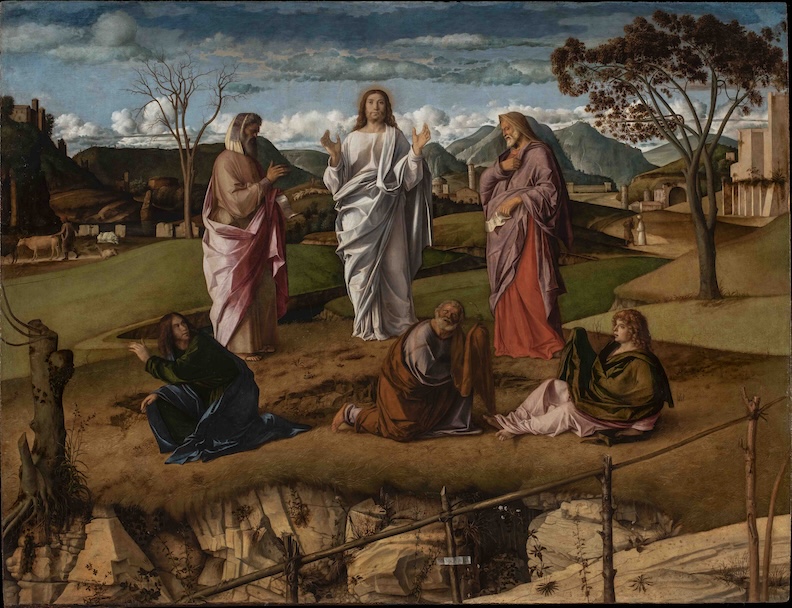The truth will win, often more quickly than we expected. This is an optimistic view, often maintained by the Catholic Church, such as in those moments when she is put to the test.
Yet it is not a formal doctrine, nor was it a promise of Christ, who instead warned us not to take things for granted (except persecution). So I will have to present it as a hopeful opinion. Still, I have more confidence in it than do the other merchants of trends.
Hope itself is not an argument for complacency, but rather, an argument against despair. The Christian virtue of Hope – like all the other graceful mysteries – presents difficulties to the narrowly rationalist mind, and to its logical conscience, steeped in naturalism.
This background Christian virtue of Hope is surprisingly robust, in action. But it is not easily understandable in our present, heretical environment. We should be hoping for what?
Hope is a theological virtue, higher, in a sense, than any of the cardinal virtues. The “cardinals” in effect explain themselves, to the intelligent, whether Christian or not. In the pursuit of a worthy end, they display themselves. They are “reasonable” virtues, easy to defend.
Whereas, the “theological” virtues – Faith, Hope, Charity – cannot make sense to the purely rational man, to the mind formed on the ideal of “pure” science, shaking off religion. Such a person must be a pure sceptic, and may follow that route to pure cynicism.
His hopes can be placed only in little things; in naturalist or material things, encountered by chance. He is a tourist in this world, as are all humans. Without the theological virtues, he cannot hope to “write home” through prayer. His hopes for himself must always depend upon his human knowledge. He knows that he will die. Nothing can end well.
The Catholic, and in his parallel other faithful Christians and Jews, will instead construct their answer to that question, “Hope for what?” – in memory of divine promise.
“Thy kingdom come” is the phrase in the Lord’s Prayer. It is in the coming of His Kingdom that our individual hope is vested, and for the Christian, it is Hope writ large.
This isn’t a “scientific” hope that God’s kingdom will prove to have been real, and authentic. We are in no position even to speculate about that. We are TOLD it is reality, and we accept or reject what we have been told.
To imagine that this kingdom MIGHT exist, is like imagining that the earth might be; that in spite of every reservation, the appearances of the here and now are NOT maya or illusion, the way they are presented in the eastern religions.
Instead, we wish to be saved, for real. And we make our appeal in this complicated life; in the here and now. It is in this hopeful appeal that life in the world becomes vivid to us. The Kingdom of God is, as it were, at hand.

Of course, a great deal of speculative “science” must follow from any conception of immortality. We entertain the notion that what we sense is real; that what is real, continues. That a human has a body, that he has memory, that he has the power and the calling to be a saint – we take for real, because that is how things are in the here and now.
Hence: “Thy will be done on earth as it is in heaven.” This is another phrase, expressing our theological Hope – not to be confused with an expression of expectation. Our task, in the approach to Heaven, must begin here, and now. Our work “is cut out for us.”
Faith, hope, and charity go beyond reason, lighting the way to Heaven. These are not things to “believe,” merely, but things to do. By complement, such cardinal virtues as that of Prudence offer rational checks on our “journey,” or “pilgrimage,” but would be useful wherever we were going.
But by contrast, the theological virtues are idle, useless, to the man on the naturalist path. Sometimes they are mentioned, sentimentally, but for that reason they become mere words.
Mr. Ed Feser — a remarkable American thinker — writes elsewhere of the triumphs of the Woke heresy. He is using that term “heresy” quite precisely, to mean more than “incorrect answers on a quiz.”
Like Eric Voegelin, Hilaire Belloc, and many, many others through the centuries, he is not indulging in the vanity of “heresy hunting,” as a kind of ecclesiastical game. He is confronting the actual, very dark thing, that has again come alive in our “here and now” world, and is turning it upside down.
This heresy is unmistakably large. Yet it will seem to begin and end with nothing – as ungodly heresies have ever done.
What we have called by the names Gnosticism, Manicheanism, Albigensianism, Catharism, &c, have endured and then evaporated in the past, leaving in every case a trail of terrible, very material, destruction. Puritanism, too, seems to have come and gone away. In our modern, “secular” societies, various socialist and progressive ideologies have been coming and going.
Whether “religious” or “secular,” in each case the heresy offers a parody of Judeo-Christian religion. (Even Communism provided this.)
The heretic pretends to offer peace, if his terms are met; and if they are met, he will install chaos.
Whether packaged as a post-religious cult or as a fashionable secular movement, the Woke heresy posts essentially the same bill of goods as ALL the former great heresies. Signally, it denies human flourishing, and puts us under the guidance of a self-appointed, gnostic order of “experts” who tell us how to live.
This is the perpetual “revolution” – recurring, as the word implies. For it goes around and comes around, like the moon.
“Woke” is the current lunacy, the current phase. But it can be defeated, by a genuine Christian virtue. By Hope.















